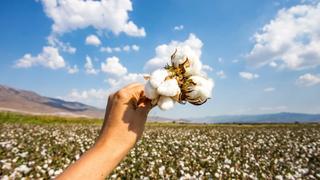The United Planters’ Association of Southern India (Upasi) has urged the Centre to help provide stability to the plantation sector by announcing measures to attract fresh investments.
Upasi President RM Nagappan pointed out that considerable cuts in funds allocation to commodity boards in the past Union Budgets have adversely affected the plantation sector, as the boards are not in a position to disburse the dues to the growers under various development schemes.
Pre-Budget memorandum
“We request the government to consider higher allocation to clear the dues to the plantation sector. The committed subsidy on developmental schemes as well as the incentives eligible in a large number of cases from 2015-16 are not disbursed due to paucity of funds,” Nagappan said in a pre-Budget memorandum to the Union Finance Minister.
Further, the subsidy extended at ₹25,000 per hectare for replanting of rubber is not in conformity with the actual cost of production, which is estimated at ₹3 lakh per hectare, he said. In the tea sector, the cut in outlay has affected the disbursement of incentives for all developmental schemes, including orthodox subsidy scheme, he added.
Rubber imports
The increased imports of natural rubber, and thereby the non-remunerative prices, have forced producers to stay away from tapping. This has affected the livelihood of millions of rubber growers. If the situation is allowed to continue, it will make India fully dependent on foreign countries for this strategic raw material. Hence a levy of safeguard duty on import would protect the livelihood of small producers, said the memorandum.
He requested the government to fix a minimum support price (MSP) for plantation commodities per the recommendations of the MS Swaminathan Committee at the cost of production plus 50 per cent so as to provide security for long-term investment decisions and to ensure remunerative prices to the growers. The IT Rule 7B(1) should be amended to tax coffee only from the stage of roasting and powdering, said the memorandum. This would enable the grower to sell coffee after curing (a process akin to milling) directly and thereby increase the share in the value chain, it added.






Comments
Comments have to be in English, and in full sentences. They cannot be abusive or personal. Please abide by our community guidelines for posting your comments.
We have migrated to a new commenting platform. If you are already a registered user of TheHindu Businessline and logged in, you may continue to engage with our articles. If you do not have an account please register and login to post comments. Users can access their older comments by logging into their accounts on Vuukle.